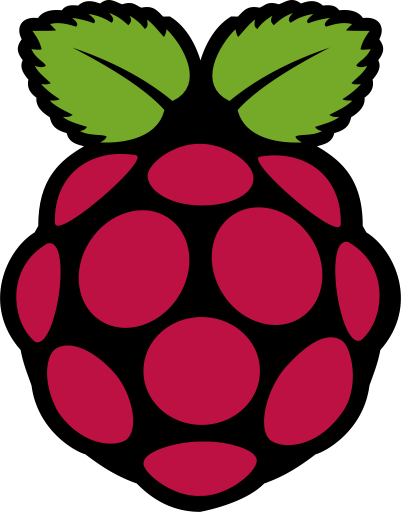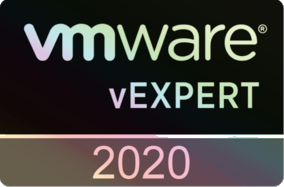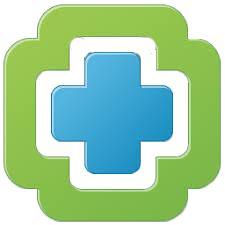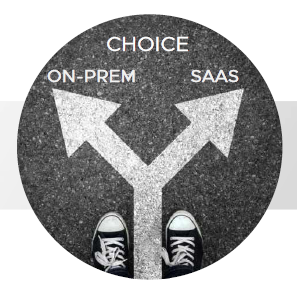 Written by Sam McGeown
on 15/12/2020
Written by Sam McGeown
on 15/12/2020Published under Cloud-Native
 When I deploy a new service into a namespace, I need to create a new DNS record that makes it available. I’ve previously talked about using CoreDNS to host my lab DNS zones, but this is something different. I want to make a Kubernetes Service available using an existing Microsoft DNS server - which is already used by all the clients who would need to access the service.
To do this I will create a delegated zone under my existing zone cmbu.
When I deploy a new service into a namespace, I need to create a new DNS record that makes it available. I’ve previously talked about using CoreDNS to host my lab DNS zones, but this is something different. I want to make a Kubernetes Service available using an existing Microsoft DNS server - which is already used by all the clients who would need to access the service.
To do this I will create a delegated zone under my existing zone cmbu. Written by Sam McGeown
on 4/11/2020
Written by Sam McGeown
on 4/11/2020Published under vRealize Automation
 To generate a basic authentication header from a username and password in Code Stream you could use a CI task and execute echo -n username:password | base64 in the shell then export the result for use later on. A more repeatable way is to create a Custom Integration that takes the two inputs, and returns the encoded header as an output.
To create the Custom Integration:
Create a new Custom Integration named “Create Basic Authentication Header” Select the Runtime - the examples below are shell and python3 respectively Replace the placeholder code with the example from below Save and version the Custom Integration, ensuring you eanble the “Release Version” toggle Creating the Custom Integration To use the Custom Integration in a pipeline:
To generate a basic authentication header from a username and password in Code Stream you could use a CI task and execute echo -n username:password | base64 in the shell then export the result for use later on. A more repeatable way is to create a Custom Integration that takes the two inputs, and returns the encoded header as an output.
To create the Custom Integration:
Create a new Custom Integration named “Create Basic Authentication Header” Select the Runtime - the examples below are shell and python3 respectively Replace the placeholder code with the example from below Save and version the Custom Integration, ensuring you eanble the “Release Version” toggle Creating the Custom Integration To use the Custom Integration in a pipeline: Written by Sam McGeown
on 7/10/2020
Written by Sam McGeown
on 7/10/2020Published under Cloud-Native and VMware
 As more services go live on my Kubernetes clusters and more people start relying on them, I get nervous. For the most part, I try and keep my applications and configurations stateless - relying on ConfigMaps for example to store application configuration. This means with a handful of YAML files in my Git repository I can restore everything to working order. Sometimes though, there’s no choice but to use a PersistentVolume to provide some data persistance where you can’t capture it in a config file.
As more services go live on my Kubernetes clusters and more people start relying on them, I get nervous. For the most part, I try and keep my applications and configurations stateless - relying on ConfigMaps for example to store application configuration. This means with a handful of YAML files in my Git repository I can restore everything to working order. Sometimes though, there’s no choice but to use a PersistentVolume to provide some data persistance where you can’t capture it in a config file. Written by Sam McGeown
on 21/9/2020
Written by Sam McGeown
on 21/9/2020Published under Cloud-Native
 If you’re anything like me, your home lab is constantly changing, evolving, breaking, rebuilding. For the last year or so I’ve been running all my home kubernetes workloads on a Raspberry Pi cluster - and it’s been working really well!
I’ve been through several iterations - for example firstly running on SD cards (tl;dr - it’s bad, they wear out really fast with Kubernetes on board!), then PxE booting them from my Synology to it’s now current state of booting directly from SSDs.
If you’re anything like me, your home lab is constantly changing, evolving, breaking, rebuilding. For the last year or so I’ve been running all my home kubernetes workloads on a Raspberry Pi cluster - and it’s been working really well!
I’ve been through several iterations - for example firstly running on SD cards (tl;dr - it’s bad, they wear out really fast with Kubernetes on board!), then PxE booting them from my Synology to it’s now current state of booting directly from SSDs. Written by Sam McGeown
on 16/9/2020
Written by Sam McGeown
on 16/9/2020Where can you find me at VMworld 2020 VMworld 2020 - possible together VMworld 2020 is fast approaching (Sept 29th-October 1st), and in case you hadn’t heard, it online and free! If you struggle getting funding for tickets and flights normally, this could be a golden opportunity to get involved! Register for VMworld 2020 for FREE here! Please come and talk to me for my round table session, it will be awkward by myself!
 Written by Sam McGeown
on 18/4/2020
Written by Sam McGeown
on 18/4/2020 In the most recent round of vExpert sub-program applications, I was asked to help review applications for the vExpert Cloud Management track. As part of the CMBU and a long-standing vExpert it made sense for me to help out, and I was happy to do so. I reviewed ~60 of the applications that were in my area - automation. The experience was an eye-opener. What follows is a distillation of what (not) to do when you’re writing your application.
In the most recent round of vExpert sub-program applications, I was asked to help review applications for the vExpert Cloud Management track. As part of the CMBU and a long-standing vExpert it made sense for me to help out, and I was happy to do so. I reviewed ~60 of the applications that were in my area - automation. The experience was an eye-opener. What follows is a distillation of what (not) to do when you’re writing your application. Written by Simon Eady
on 16/3/2020
Written by Simon Eady
on 16/3/2020Published under vRealize Operations
 vROps Cluster without a Load Balancer (gotchas) Product Version - vRealize Operations 7.5 While it is far from recomended to deploy a vROps Cluster without a loadbalancer there are circumstances where this is done.
Recently helping a customer deploy a couple of simple issues cropped up that were not immediately obvious as to why they were issues.
Unable to connect to Master Node when expanding the cluster We hit this issue and initialy it was a question mark moment there were no firewalls in the way and network connectivity was good end to end.
vROps Cluster without a Load Balancer (gotchas) Product Version - vRealize Operations 7.5 While it is far from recomended to deploy a vROps Cluster without a loadbalancer there are circumstances where this is done.
Recently helping a customer deploy a couple of simple issues cropped up that were not immediately obvious as to why they were issues.
Unable to connect to Master Node when expanding the cluster We hit this issue and initialy it was a question mark moment there were no firewalls in the way and network connectivity was good end to end. Written by Simon Eady
on 10/3/2020
Written by Simon Eady
on 10/3/2020Published under vRealize Operations
 VMware have been very busy in the last few months across many of their products and Operations Management has not gone untouched. We saw glimpses of things to come late last year and now we see the Cloud Management Team in VMware really ramping things up with vRealize Operation 8.1
vRealize Operations Cloud One of the bigger items to arrive very shortly is vRealize Operations Cloud (SaaS), this means you do not need to worry about standing vROps up in your environment to see what value it can bring to your infrastructure monitoring.
VMware have been very busy in the last few months across many of their products and Operations Management has not gone untouched. We saw glimpses of things to come late last year and now we see the Cloud Management Team in VMware really ramping things up with vRealize Operation 8.1
vRealize Operations Cloud One of the bigger items to arrive very shortly is vRealize Operations Cloud (SaaS), this means you do not need to worry about standing vROps up in your environment to see what value it can bring to your infrastructure monitoring. Written by Sam McGeown
on 9/3/2020
Written by Sam McGeown
on 9/3/2020Published under Cloud Native
 I love Raspbery Pis - I have done since they first released them, all the way up to the present iteration, the Raspberry Pi 4. They’re phenominal little bits of kit, endlessly hackable and because of their really low price, they open up computing to a huge number of people who otherwise wouldn’t get the opportunity.
One of the irritating things, though, about running Raspberry Pis is that they typically boot from an SD card.
I love Raspbery Pis - I have done since they first released them, all the way up to the present iteration, the Raspberry Pi 4. They’re phenominal little bits of kit, endlessly hackable and because of their really low price, they open up computing to a huge number of people who otherwise wouldn’t get the opportunity.
One of the irritating things, though, about running Raspberry Pis is that they typically boot from an SD card. Written by Sam McGeown
on 4/3/2020
Written by Sam McGeown
on 4/3/2020Published under Community
 TL;DR - the first 50 vExperts to sign up on this google sheet and then make a donation to my fundraiser here or another charity of your choice will get a nice shiny new vExpert 2020 sticker!
A few weeks ago, I entered a StickerMule tweet contest to get some free holographic sticker prints - and I won! While I was thinking about what to do with my newly donated sticker trove, I figured why not use it to bribe the vExpert community in exchange for some charitable giving?
TL;DR - the first 50 vExperts to sign up on this google sheet and then make a donation to my fundraiser here or another charity of your choice will get a nice shiny new vExpert 2020 sticker!
A few weeks ago, I entered a StickerMule tweet contest to get some free holographic sticker prints - and I won! While I was thinking about what to do with my newly donated sticker trove, I figured why not use it to bribe the vExpert community in exchange for some charitable giving?